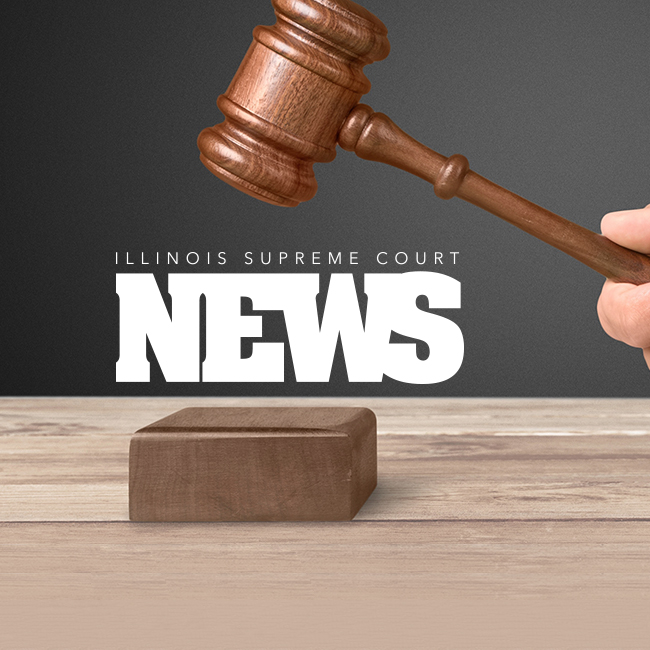Supreme Court Amends Rule on Remote Court Appearances

Chief Justice Mary Jane Theis and the Illinois Supreme Court announced today amendments to Rule 45 which provide guidelines for future remote appearances in circuit court proceedings.
“The COVID-19 pandemic changed the way our courts operate and remote proceedings are here to stay. This amended rule provides guidance to our courts and a measure of uniformity across the state,” Chief Justice Theis said. “I would like to thank the members of the Remote Proceedings Task Force of the Illinois Judicial Conference for their hard work on this important issue.”
These amendments follow the Illinois Supreme Court’s Court Technology Modernization Initiative that has distributed over $13 million in grant funding to nearly 100 county courts statewide to modernize and update courthouse technology. The initiative is continuing in 2023.
Rule 45, previously called “Participation in Civil or Criminal Proceedings by Telephone or Video Conferences,” will now be titled “Remote Appearances in Circuit Court Proceedings” and the amended rule delineates:
- Which types of court proceedings must automatically offer case participants the option to appear remotely so that the participant may choose whether to appear in person or by video or phone without requesting approval from the court.
- Which types of court proceedings require approval of the judge presiding over the matter for a remote appearance.
“In proposing the amendments to Rule 45, the task force sought to assure the continued and uniform use of remote appearances. But we also recognized the need to preserve flexibility and judicial discretion as to the manner cases proceed.” said First District Appellate Court Justice Mary K. Rochford, chair of the task force. “We believe the amended rule strikes the right balance.”
Accordingly, the amended rule has two provisions for courts to require in person appearances for case types or case proceedings where the option to appear remotely is automatic. The first is to allow a judge presiding over a case to require a participant to appear in-person for reasons particular to the specific case. The second provision allows the Chief Judge of a circuit by local rule to exempt a particular type of case or a particular type of proceeding from the automatic option to appear remotely where necessary. These exceptions are intended for narrow and limited use.
The amended rule also contains general provisions, including the requirement that all circuits adopt local rules which implement the amended rule, that all summonses and notices shall include information about the option to appear remotely and that each circuit share information plainly and clearly with the public about appearing remotely.
The amendments are effective January 1, 2023, but circuits have 90 days from that date to file their local rules with the Administrative Office. A model local rule is in development to assist the circuits in meeting the 90-day deadline. Other Illinois Supreme Court Rules are being evaluated for consistency with amended Rule 45 and will be updated accordingly.
The Illinois Supreme Court Rules can be found here: http://www.illinoiscourts.gov/SupremeCourt/Rules/default.asp
In response to the COVID-19 pandemic, the Illinois Supreme Court adopted in May 2020 Supreme Court Rule 45, amended Rule 241, and adopted the Illinois Supreme Court Policy on Remote Court Appearances in Civil Proceedings to allow and encourage the broad use of remote court appearances.
The amendments to Rule 45 were drafted by the Remote Proceedings Task Force of the Illinois Judicial Conference. The task force, created earlier this year, is composed of circuit judges, trial court administrators, circuit clerks, and practicing attorneys. You can learn more about the Illinois Judicial Conference here.


Member Comments (3)
I think that it is a very wise "Top Down" administrative decision that will create known uniformity which will make the professional lives of those of us in the diaspora who practice in many counties, a little easier to manage.
Thank you all for your service to our profession.
Lester Weinstine
Whiteside County
The Rule should have provided in Civil Cases that any attorney may participate remotely and any witness may testify remotely unless for good cause shown a judge requires in person attendance at the courthouse. Here is a portion of the new Rule. Is the limitation in the Rule really making court proceedings available to all people without incurring the cost and time to come to the courthouse... as an example in small claims and eviction suits? One might speculate that the reason it took so long to begin utilizing available technology, and in fact took a pandemic to jump start it, was to preserve the business districts of the cities and towns of our State.
THE RULE:
Civil Matters and Criminal Matters That Do Not Involve the Possibility of Jail or
Prison Time.
(1) Case participants shall be permitted to attend court via the circuit court’s available
remote appearance technology without any advance approval, except for the following
proceeding types, which shall require the approval of the judge presiding over the matter:
(i) Evidentiary hearings, except for ex parte evidentiary hearings (such as emergency
orders of protection hearings);
(ii) Settlement conferences;
(iii) Bench trials;
(iv) Jury trials; and
(v) Any case type or proceeding type exempted from remote participation in
accordance with paragraphs (b)(2) and (b)(7).
Any case requiring testimony, subject to cross examination should be in person. As a trial attorney for 42 years in person, cross examination provides the best means of fact-finding. Overall, status zoom hearings, and prove ups in no contested matters have increased productivity and will lower clients costs eventually.